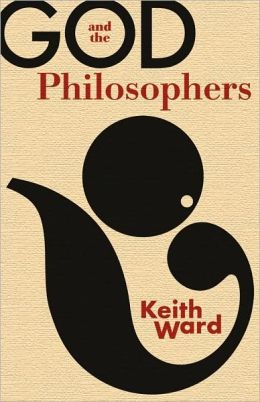Keith Ward: God and the Philosophers
 Keith Ward, God and the Philosophers (Minneapolis: Fortress, 2009), 224 pages, ISBN 9780800663513.
Keith Ward, God and the Philosophers (Minneapolis: Fortress, 2009), 224 pages, ISBN 9780800663513.
Keith Ward’s God and the Philosophers offers a close look at a handful of philosophers whose work impacted theological matters in one way or another. Ward takes on certain aspects of the thought of Plato, Aquinas, Descartes, Berkeley, Hume, Kant, Hegel, Schopenhauer, Nietzsche, and the modern (anthropological) materialists. Some of the essays are intended to correct mistaken views about a particular thinker, while others are intended to refute something they said. The book is easy to read. One particular bonus is that it frequently engages the “new atheists” in dialogue.
One need not be a student of philosophy to appreciate what Ward does in this book, as it frequently addresses those aspects of theology in which we all are indebted to philosophy. In this regard, his chapter entitled “Why Does Everybody Hate Cartesian Dualism?” is itself worth the price of the book. (There has been no figure more maligned–yet misrepresented–by modern theology than Rene Descartes.) In fact, the book functions marvelously for the study of philosophy itself, making a case (whether it means to or not) that the church needs more philosophers.
Ward is eminently qualified to write this book. I am much less qualified to review it, but I did wonder at a couple of places about Ward’s particular “take” on a subject. I was confused, for example, when Ward portrayed his teacher Gilbert Ryle as an opponent of anthropological materialism. My own reading of Ryle’s The Concept of Mind had convinced me (a few years ago) that Ryle was all about materialism. It is, of course, much more likely that I misunderstand Ryle than that Ward misunderstands him, but I would have appreciated a brief explanation of how this figure who looks so much like a materialist should be construed as its enemy. I would note, however, that such an explanation perhaps lies beyond the level at which Ward intended to write.
Ward wrote this book, it appears, for those with only a marginal understanding of the major figures, although I suspect that the more-than-armchair philosophers will also find it worth reading. It is not a history of philosophy, but it does help fill in some blanks for those who have not studied philosophy at all. Its terminology is non-technical, and its language nears a magazine-level at many points. I encourage anyone with an inkling toward the more intellectual side of the faith to read this book.
Reviewed by John C. Poirier
Preview this book: books.google.com/books?id=YhOsWrX1sZoC
Category: Fall 2011, In Depth, Pneuma Review


